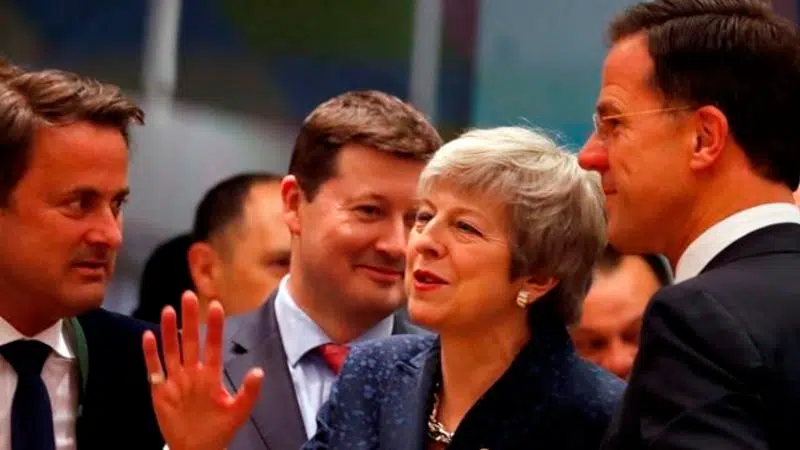
EU leaders open to Brexit delay but demand UK passes deal
BRUSSELS — European Union leaders said Thursday they were likely to grant Britain a short delay in its departure from the bloc if the U.K. government can win parliamentary support next week for its EU divorce deal. But some warned that both Britain and the EU are heading toward a disruptive no-deal Brexit if lawmakers spurn the agreement again.
EU leaders arriving for a summit in Brussels said they wanted to help British Prime Minister Theresa May, who has asked to postpone Brexit, due on March 29, until June 30 because of Britain’s political impasse.
But French President Emmanuel Macron cautioned that it was the British Parliament’s responsibility to make sure Britain does not crash out of the bloc without a Brexit deal.
